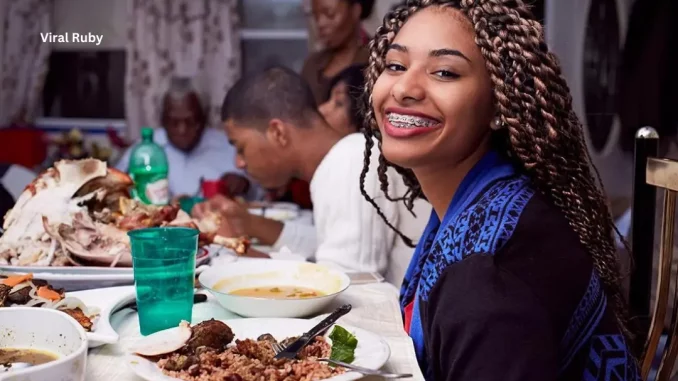
What to Eat When You First Get Braces?
If you’re just getting braces, it’s important to eat the right foods. Otherwise, your wires, bands, and brackets could be damaged.
Sticky, chewy, crunchy, and hard foods should be avoided. They can damage your braces, make cleaning difficult, and cause discomfort.
What to Eat When You First Get Braces? – First Braces
When you first get braces, it is important to choose soft foods that are easy on your teeth. This is because your mouth is tender and you want to minimize pain and inflammation while also protecting your brackets and wires.
Foods that are chewy, crunchy, hard and sticky can damage your braces and cause more harm than good. Avoid foods like caramel, toffee, popcorn, hard bagels, tough meats and nuts.
Get More: Tucker’s Dog Food Siamese and Ingredients
You can also eat some raw fruits and veggies, but it is best to cut them up into small pieces so they’re easier to chew with your back teeth. For instance, corn on the cob can be stripped off the cob and then sliced into small bite-sized pieces.
Other braces-friendly snacks include mashed potatoes, soups and smoothies. Smoothies are especially good because they can numb your sore mouth and alleviate pain. Yogurt is another delicious protein-packed snack that will help hydrate your mouth and give you a feeling of fullness.
What Can You Eat the First Week of Braces?
When you first get braces, it is important to follow a diet that is designed for your oral health. You will mainly be avoiding hard or sticky foods as they can cause the bonding between your teeth and brackets to break, which could prolong your treatment.
Therefore, your orthodontist will advise you to eat soft foods for the first week of your treatment. This will give your mouth time to adapt to the new changes, and it will also help minimize discomfort.
One of the easiest and most nutritious meals for you to eat during this time is a bowl of soup. Soups are rich in vitamins and minerals that are essential for maintaining healthy teeth and gums.
Another great meal to eat the first week of your braces is scrambled eggs. Eggs are a protein-rich food that is easy to digest. Scrambled eggs are easy to make and can be a quick and tasty breakfast option for you or your child.
Yogurt is another excellent snack that you can eat during the first week of your braces. If you want to eat yogurt that is a little more like an ice cream, put it in the freezer for a few minutes.
What Is Easy to Eat When You First Get Braces?
What you eat when you first get braces can make a big difference in how much pain you feel. You will want to avoid chewing hard foods that can cause your brackets and wires to break.
Eating hard and crunchy food can also pull the brackets and wires away from your teeth, causing discomfort. So, it is important to eat soft foods that are easy to chew and swallow.
Among the best soft foods are vegetables, eggs and oats. Eggs are a great source of protein and can be enjoyed in many different ways.
Fruits are a good choice as well and can help to relieve achy teeth and gums. Bananas and berries are soft and can be eaten without causing too much pain.
Soup is another great soft food that is easy to eat and helps soothe achy mouths. Some soups to try are lentil soup, miso soup, tomato soup and chicken noodle soup.
Soft Lunch Foods for Braces
When you first get braces, you may find it hard to eat certain foods. However, if you stick with soft food options for the first few days, it will be easier to eat and your mouth will feel better.
One of the best soft lunch foods for braces is yogurt, which can be a delicious and cooling snack or part of a meal. Try to choose plain yogurt, without any added sugars or other additives.
Yogurt also helps to soften your teeth, which can be especially helpful if you have sore gums. You can even add a little fruit to your yogurt, which will be soothing on your sore mouth and help to keep you feeling nourished.
Eggs are another excellent soft lunch option, particularly if they are scrambled or sunny-side up. They are soft, melt-in-your-mouth tender and easy to chew, and they will provide plenty of protein during your treatment period.
Soup is also a great option, since it can be filling and nutritious. You can add a variety of ingredients and sauces to make it interesting and flavorful. It’s also very easy to cook, so it makes a quick and tasty lunch on the go.
Drinks to Avoid with Braces
While some people enjoy drinking sodas or juices, they can damage your teeth and cause dental emergencies when you have braces on. These drinks are filled with sugar that is easily absorbed into your teeth and gums, allowing bacteria to grow and create acid that eats away at your tooth enamel.
Drinks with carbonation also can stain your brackets and other metal parts of your braces when they come off. This will make your teeth appear a strange gray color, and the stains can be very difficult to remove.
Fruit juices are another popular drink, but these drinks contain high amounts of citric acids that can damage your teeth and cause cavities. It’s important to choose fruit juices that are free of citric acid when you have braces on.
Chewy, crunchy and hard foods can also be damaging to your braces. These types of foods can snag on your brackets, pop them off and bend wires. Try to avoid chewing these kinds of foods unless you have time to thoroughly clean them afterward.
Do Braces Hurt the First Day?
Braces are an essential tool for correcting teeth alignment and reshaping the jawbone. It can prevent gum disease, tooth loss and other dental issues that result from crooked teeth.
When teeth are misaligned, tartar and plaque build up between the teeth and along the gum line. This can create bone erosion and cause inflammation of the gums.
It is normal for patients to feel some sensitivity during the first few days after getting braces, but this is only temporary and will fade over time. To help relieve this sensitivity, try using orthodontic wax or salt water rinses to reduce the irritation.
If you experience significant pain, take an over-the-counter pain medication like Advil. We recommend taking this prior to your bonding appointment or adjustment so that it will kick in by the time the pressure from the wires and brackets put any pressure on your teeth.
You can also use an ice pack on the outside of your mouth to help numb any discomfort. It can be applied to the outside of your cheek for about 20 minutes at a time and should provide pain relief.
What Should You Not Eat the First Week of Braces?
Braces can improve your smile by straightening your teeth and correcting a gap, overbite or underbite. They can also help relieve pain and discomfort. However, you may feel soreness in your mouth after getting braces put on or during your first week of wearing them.
Food Lovers: Top Cakes You Can Buy for an Important Event
During that time, you should avoid eating foods that can cause discomfort or damage your braces. This includes foods that are hard, sticky or chewy.
Some of the most common foods that aren’t safe for a braces wearer to eat include: crunchy fruits and vegetables, hard-boiled eggs, popcorn, nuts and beef jerky.
These aren’t just difficult to digest but they can also make your mouth sore and irritated. Moreover, they’re a lot harder to clean.
Thankfully, there are many easy to prepare, soft food options that you can enjoy while wearing braces. Soups are another great choice, as they can be made to be very soft and require very little chewing.
How Long After Getting Braces Can You Eat Normal Food?
When you first get braces, it is normal for your mouth to be very sensitive. As your gums and teeth adjust to their new positions, your orthodontist may recommend that you eat only soft foods.
The good news is that after a few days or weeks, you will be able to eat most foods normally. As long as you eat slowly and carefully, you should be fine!
But for the first few days, you should avoid eating anything that is hard, crunchy or sticky. These types of foods can dislodge or damage your braces.
Fruits and vegetables should also be avoided unless cut into small, bite-sized pieces. This will allow you to chew them more easily.
Similarly, raw or uncut meat should be avoided unless removed from the bone. Biting into meat with your front teeth can be painful.
You can eat most foods as long as you break them into tiny, bite-sized pieces and chew them with your back teeth instead of your front teeth. This will help to reduce pain and discomfort from your braces.

Leave a Reply